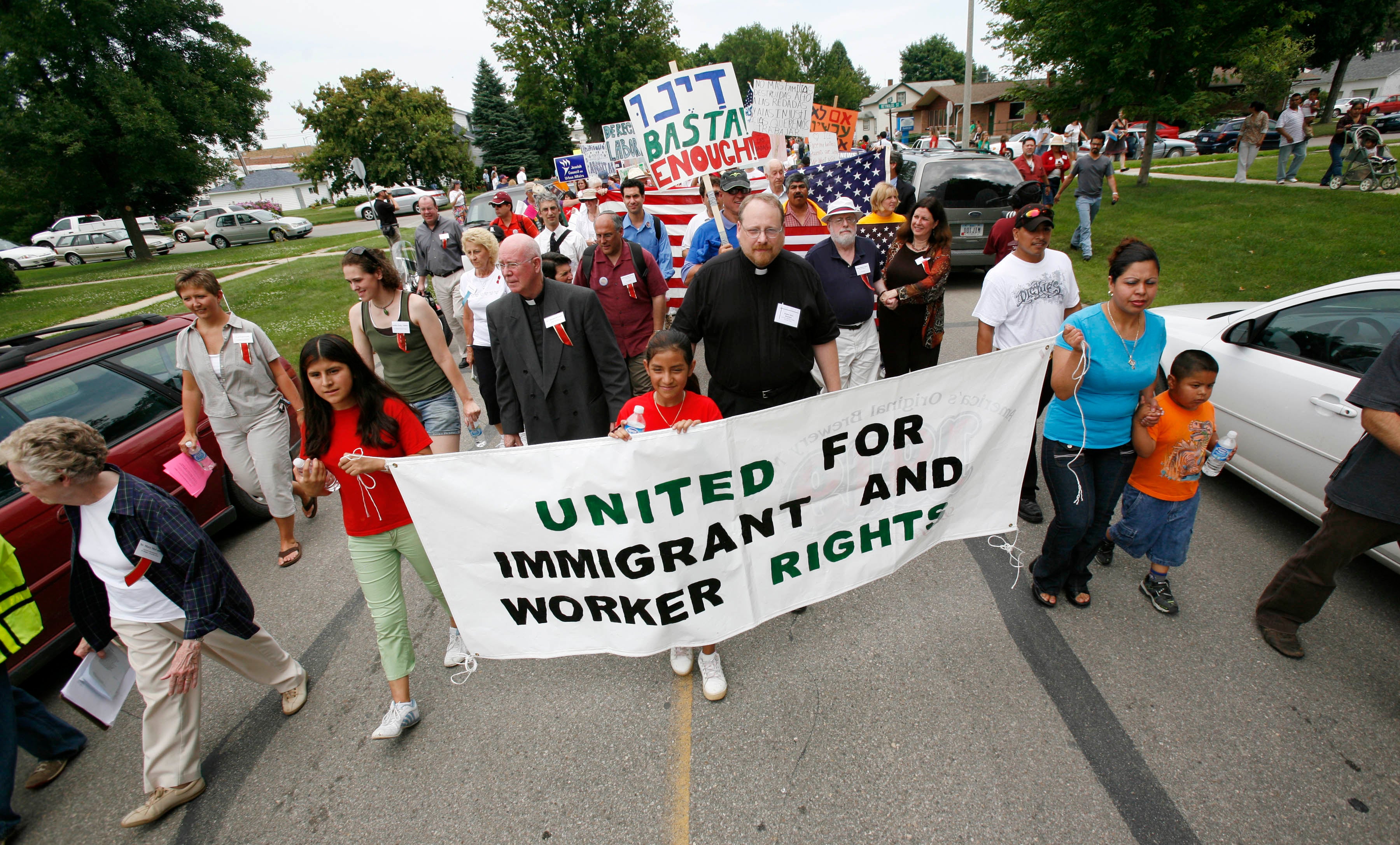Stress stemming from fear of raids, deportation appears to influence immigrants’ health
Listen
Hundreds of people march down a street
New research is looking into how deportation and immigration enforcement actions affect health.
University of Michigan researchers wanted to follow up on studies linking stepped-up immigration enforcement with physical and mental health problems for undocumented immigrants and Latinos.
They concentrated on one, major event. At the time, it was the largest raid in U.S. history, at a kosher meatpacking plant in Postville, Iowa.
“Nine-hundred immigration agents came through a town of 2,000 people. And they arrested 389 workers at a meat-processing plant,” said lead researcher Nicole Novak.
Afterward, researchers saw that a higher proportion of infants in that area born to Latina mothers had low birth weights. To be sure there was a connection, they adjusted for other factors that might have affected the risk of having a low birth weight baby.
But white mothers in the state did not see an increase in such problems.
Past studies have shown that stress affects an infant’s growth in the womb, Novak said. She hypothesized these women were under so much stress that it showed up in their babies.
As the immigration debate has grown more heated nationwide, and there’s been talk of defunding “sanctuary cities” including Philadelphia, an OB-GYN said patients locally have noticed.
“There’s no question that women are concerned. People are incredibly scared,” said Dr. Jack Ludmir, a co-founder of Philadelphia’s Puentes de Salud, a South Philadelphia nonprofit promoting the health and wellness in the Latino community.
Prenatal care is not just about measuring a pregnant woman’s belly or checking her blood pressure, Ludmir said.
“It is more,” he said. “To have a relationship, and to make them feel at least with the five minutes that they spend with us, that we are supporting them.”
His patients, however, are not living in identical conditions with identical stressors as those women in the study.
The researchers said social supports from friends and family, as well as medical providers, can soften the effects of intense stress.
WHYY is your source for fact-based, in-depth journalism and information. As a nonprofit organization, we rely on financial support from readers like you. Please give today.




